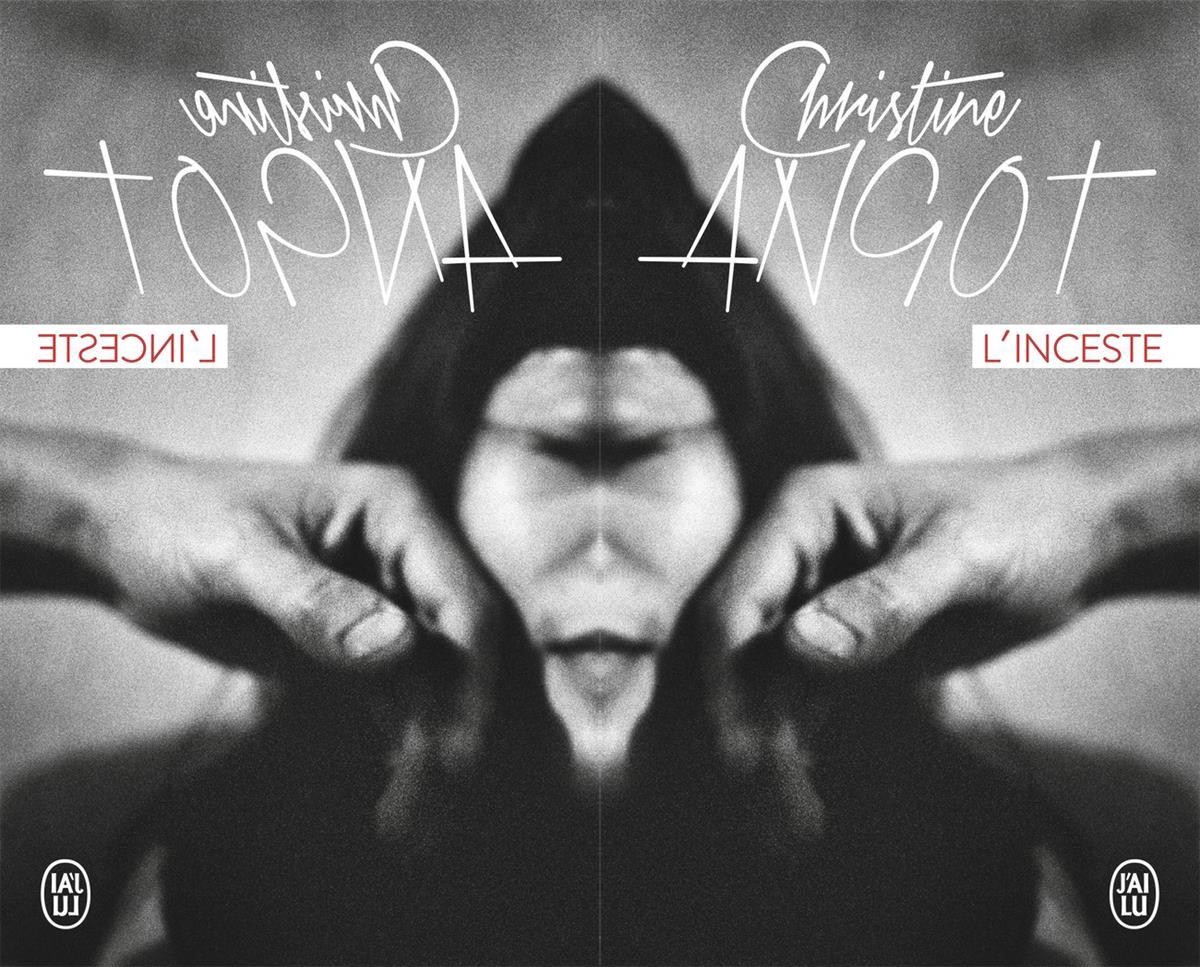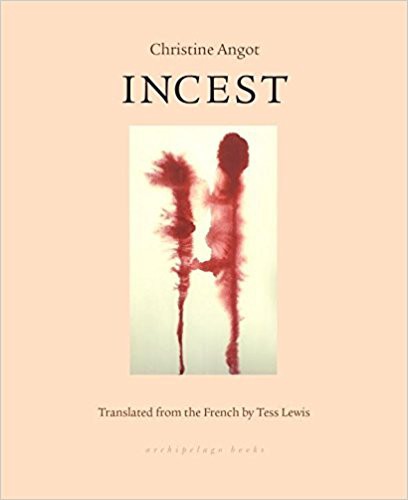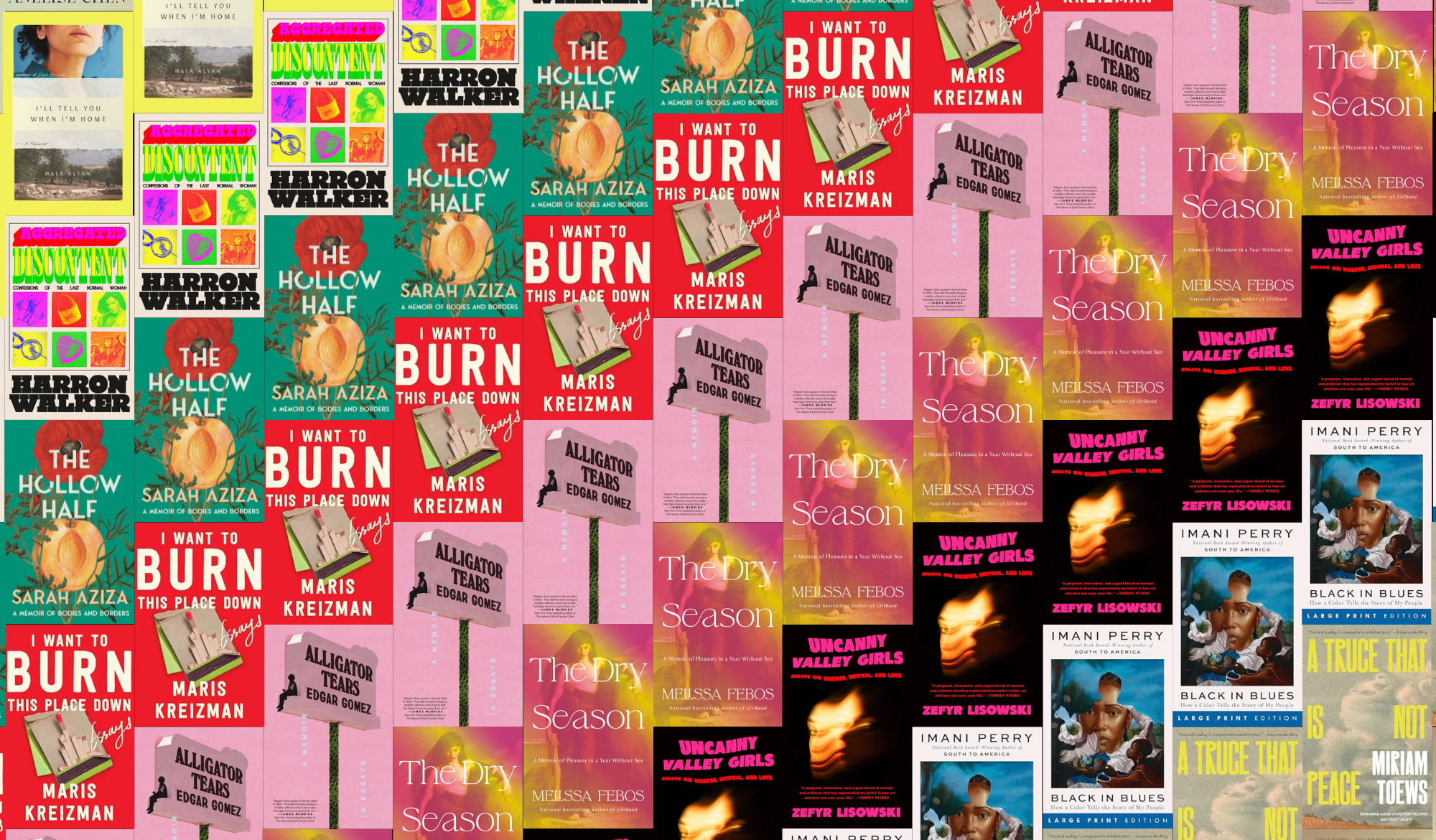interviews
Can a Book About Incest Be Greater Than Its Shock Value?
Two writers discuss Christine Angot’s memoir-novel of sex, obsession, illness, and incest

Double Take is a literary criticism series in which two readers tackle a book’s innermost themes, successes, failures, trappings, and surprises. In this edition, Heather Scott Partington and Ian MacAllen explore Christine Angot’s memoir-inflected novel, Incest.
The central relationship in Christine Angot’s autobiographical novel Incest, translated from the French, is not an incestuous one. It’s a brief, intense love affair between the narrator (also “Christine Angot”) and another woman—an affair that, as the book opens, has fallen apart. But, as one might expect from a book literally titled Incest, the specter of incest—Christine’s earlier sexual relationship with her father—hangs over the narrator’s experience of love, grief, motherhood, illness, and trauma. It’s a provocative book from a consistently provocative (though rarely translated) writer. Our readers ask: is there deeper value beyond the shock? And in what sense is sex, and incest, kind of like writing?

Heather Scott Partington: From the start, I was struck by Angot’s direct, fragmentary sentences. In the beginning, when she’s introducing her romantic obsession, I think it works particularly well to convey her desperation. “Even at this very moment,” she writes, “Have to stop myself from calling her… I call back to say, ‘above all, don’t call me again.” She binds the idea of homosexuality as a choice with her inability to gracefully let the relationship go. She says, “I was homosexual for three months… I was homosexual the moment I saw her.” At first I wondered if this posture on homosexuality — as optional, binary — was intended for shock value. But after reading the entire novel, I don’t think this is a piece of work that gets its value just from jarring its reader. (Though it’s certainly intended to provoke.) Incest is a raw examination of desire and obsession, but I think to reduce it to words like brave would undercut the complexity of Angot’s work.
What was your initial reaction, Ian? Do you think Angot intends her reader to recoil, a bit, from her approach and subject matter?

Ian MacAllen: My first thought was that this book was one about frustration. It manifests itself in multiple ways. Creatively, she is frustrated, but there is also constant tension between concepts like sex and love between both abusive and healthy relationships. There is frustration in expression of these emotions and the cognitive dissonance required to process them. She says, “‘Everything can always be mashed together’ could have been my motto,” and I think that gets to the heart of these conflicts. I’m not sure I see her view of homosexuality as a literal choice, but moments where she is allowing a truth to emerge, one that must coexist with other desires. I see that as an extension of her frustrations as well as part of her recognition that everything is linked.

HSP: I saw it less as frustration and more as an innate inability to change who she is. For me, her true self keeps rising to the surface of both her relationship and her sentences. The “mashing together” gave this text interesting layers. While the narrator reminded the reader continually of the limited term of this relationship, she is unable to leave her love or escape her stylistic tendencies. It is worth noting that Angot rejects interpretation, rejects the idea of readers codifying the narrator’s beliefs or identity in any way, writing, “To take this book as a shit piece of testimony will be an act of sabotage, but you’ll do it. It screws up a woman’s life, it screws up a writer’s life, but, as they say, it doesn’t matter.”
In fact, when the text becomes metacognitive, when — in the second half — she begins to comment on her choices as a writer and try to make different ones, she seems to fall back into the same patterns of layering the story back into itself. She calls it “a miracle of logical disorganization.” I agree with you particularly about the way she links healthy and unhealthy relationships, deliberately crossing a reader’s boundaries.
IM: She feels immutable in that way — and overall there wasn’t much of a change in her through the duration of the narrative other than coming to terms with that inflexibility. I’m not sure I agree that she is actually rejecting interpretation, though. She says, “I associate things others don’t associate, I bring together things that don’t fit together… I highlight opposites.” To consider those relationships demands a level of interpretation. Consider the examples she cites like “blonde-bitch” or “money-hate.” These are fairly abstract associations. Also, the irony is that in a translated work, the whole thing is to some extent already interpreted for us by the translator. As readers of the English, we don’t have the opportunity to read Angot without a level of interpretation imposed on the text. There is no pure text here, unless we go back to the original French.
Who Gets to Write About Sexual Abuse, and What Do We Let Them Say?
Angot is being most truthful when she is discussing her choices as a writer. On one level, I see this book as a treatise on writing itself.
She is struggling to organize the world — or her interpretation of the world. This is the challenge of any writer, and that’s why talking about sex can be so relevant. So much of sex is having control. A writer has absolute control, something that seems to have been lost through abuse, but that she is struggling to recapture through writing. I think this is partly why she includes the definitions of incest and narcissism and desire to seize control of this language — like when she gives a concrete and specific definition of incest:
We call incest a sexual relation without force or constraint between blood relatives to a degree prohibited by the laws of each society. In almost all societies, except for a few cases including Egyptian Pharaohs or the ancient nobility of Hawaii, incest has always been severely chastised then prohibited. That is why it is so often kept secret and experienced as a tragedy by those who engage in it.
So much of sex is having control. A writer has absolute control, something that seems to have been lost through abuse, but that she is struggling to recapture through writing.
HSP: I found myself thinking about the French a lot, too. Many of her linguistic tricks seemed like near-puns (my French is pretty rusty, though). I also had the feeling that a lot of this worked on a different level in the original text.
Again, here we see how two different readers approach a narrative differently. I read the passage you cite — about highlighting opposites — as indicative of how she places objects together without analysis. To me, the novel resists interpretation so stubbornly. Angot underscores this with her flat affect when writing of difficult or taboo circumstances. The narrator’s paired opposites represented a microcosm for how she tells this story. She juxtaposes dissimilar things to provoke. I suppose it’s more accurate to say she juxtaposes in such a way that forces her reader to hold two opposing thoughts at the same time — particularly the idea of parent/child relationships with sexual relationships. This brings me back to my original thought:
I wonder if Angot’s desire to be provocative supersedes the story she wants to tell. She definitely makes me question whether there are some topics that the human mind cannot (and, for reasons of survival, should not) compute.
She definitely makes me question whether there are some topics that the human mind cannot (and, for reasons of survival, should not) compute.
What do you make of this book being labeled a novel, rather than nonfiction? Does genre affect the way you read the work?
IM: I agree; Angot is reaching to be provocative. You don’t title a book Incest without looking to get a rise out of people. There are definitely moments where she the language is designed to incite like when she says to “make the vagina’s wetness go into the anus” or “I move the cock, I see the spot. I penetrate. My fingers become a cock.” Its tapping into a kind of raw emotion as a catalyst to feel. Yet there are these other moments — like when she reflects on the Barbie doll put under the tree — that feel much more controlled. It’s another example, as you say, of two oppositional ideas being forced upon the reader. There is this unabashed discussion of sex acts and desire, and she wants us to have this sense of sweet loving coziness of family, but I take it as Angot pushing us towards discomfort rather than the impossibility of contemplation.
Genre is a curiosity. The idea of a novel as a genre for a bookstore means something very different than it does for the author of a book. I can’t help but think of another French writer, Adrien Bosc, who’s “novel” Constellation was translated last year. Americans are more thoughtful of the distinctions between fiction and nonfiction, while in French the flexibility always existed. I’m paraphrasing what Bosc said, the moment information is organized by chapters, there is a kind of fiction that exists. In Angot’s case, even if this was based on memoir, there is an inclination to fictionalize due to the nature of the material. Also, she insists that “I don’t have the right to use real names, the lawyer has forbidden it, not even real initials.”
You don’t title a book ‘Incest’ without looking to get a rise out of people.
If we consider this as nonfiction, albeit nonfiction as a metaphor, it strikes me that she is making linkages between unconnected ideas, the mashing up she talks about. Also in context to sexual abuse, that writing is about power and vulnerability. Do you think I’m reading too much into this?
HSP: I’m less concerned with trying to figure out how true something is than I am trying to figure out how I understand it or experience it while reading, anyway, since that’s the only part of this I control. The author writes it down, choosing details and edits certain things out, so even a memoir becomes a representation. That goes to what Bosc is saying with his ideas about imposing a narrative structure. Angot seems to want to muddy things — her deliberate choice of, conflation of, and emphasis on names from her actual life draws attention to the fact that readers look for autobiographical connections, or truth. In the passage you mention, she calls her own work “serious invasion of the privacy of the author’s father, as she recounts their incestuous relations in precise detail.” She wants to push the genre button, too. Pushing readers toward autobiographical details feels like it’s in line with how she wants to shock.
I don’t think you’re reading too much into it. Sex is transactional, and so too is writing. Writing is manipulative; asking a reader to feel things while their eyes look at words on a page. There’s power changing hands in both scenarios. Both involve vulnerability, and incest is a perversion of healthy boundaries. It makes sense to me Angot wants to push boundaries in her writing, too. Angot’s mimetic style forces a reader to be in her narrator’s head and I would argue it’s not a comfortable space — but that she doesn’t want it to be. She says, “my mental structure is incestuous… I associate things others don’t associate” and “I suffer from hypermesia, too strong a memory.” She wants us to feel uncomfortable, to feel too much. She wants us to feel what her narrator feels.
Sex is transactional, and so too is writing. Both involve vulnerability, and incest is a perversion of healthy boundaries.
I love when she writes, “writing is not choosing your narrative. But taking it, into your arms, and putting it calmly down on the page, as calmly as possible, as accurately as possible.” There’s a sense that this story was unavoidable, that she had to tell it this way, that even if she’s, as she says earlier, “touching garbage,” she has to treat this story with accuracy. Which, of course, I see takes me right back into discussions of genre, fictionalization, truth.
This book is an infinite loop of connected ideas.
IM: To the success or failure of the book, it’s worth considering we are now almost two decades after it was first published in the French and many of the topics she confronts don’t seem nearly as shocking or abnormal. The book was first published in France in 1999, the same year same-sex civil unions were legalized. Now marriage equality is rule of law both in France and the United States. The English translation is entering into a very different world than Angot’s original text. I think the internet has changed our perception also by making available and normalizing a great number of sexual fantasies, inadvertently devaluing the original shock value of certain taboos.
I agree — juxtaposition is where the novel wants to thrive. The book spoke to me as a metaphor of creative process, the frustration of that experience. The idea of the author becoming her own obstacle to the story could even be intentional. I could understand Angot making some conscious choice to disrupt the narrative to convey the irritations and limits of creative expression.
The internet has changed our perception by normalizing a great number of sexual fantasies, inadvertently devaluing the original shock value of certain taboos.
HSP: Incest is certainly always going to be taboo (for good biological reason, right?) The other topics she touches on, less so. I think it will still have appeal in 2017 to readers who want their assumptions challenged, or for whom traditional notions of family, romance, or story don’t hold enough appeal. I am not that reader, though, and Angot doesn’t do enough innovation in how she tells the story to make this a captivating thought-journey. It disturbed me. Even knowing that was the aim of the author, it’s not one I’m likely to pick up again or recommend. The point at which I start to feel manipulated as the reader is usually the point when I check out. This one felt too contrived, too constructed in service of a response.
IM: Every author is manipulative to some extent, but the magic happens when authors trick us into believing we aren’t being manipulated. Maybe the problem with this text is with the voice. The attempt to be provocative is disrupting the ability to mask the manipulation, and so we are conscious of these efforts and put off by it.








